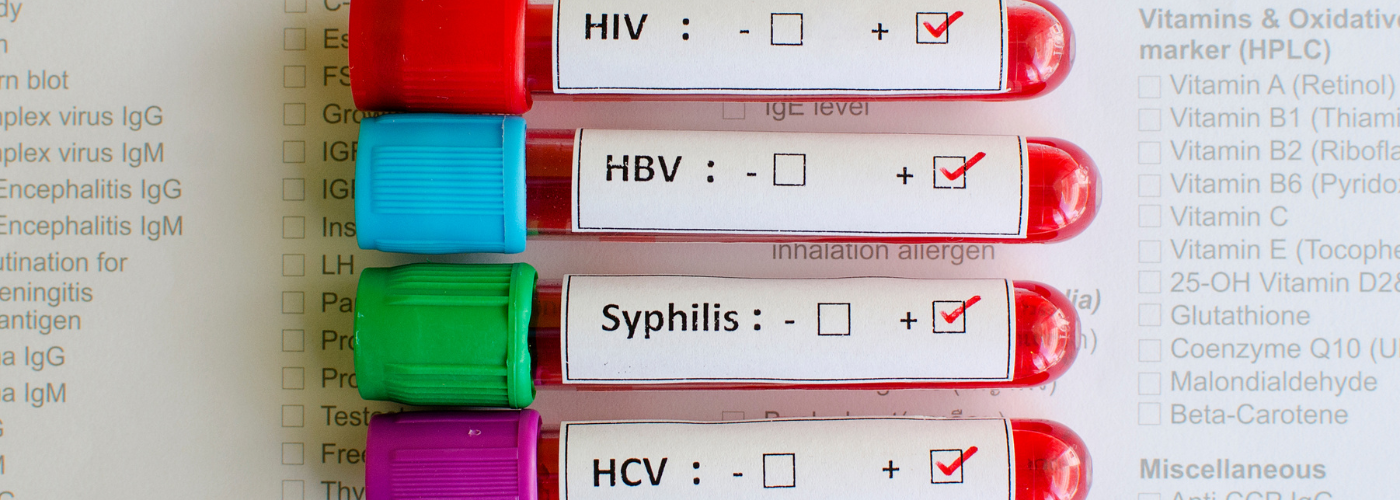Sexually Transmitted Infections (STIs)
STI Video Learning Series
Catch our video series on YouTube to learn more about sexually transmitted infections (STIs), prevention, and testing.
Simply click on the graphic to watch on YouTube.
Need to book STI testing? Click here to visit our clinic page for full details.
Anyone can get a sexually transmitted infection (STI). They are typically spread through unprotected sexual contact with an infected person. Sexual contact can mean oral sex, vaginal sex, anal sex, skin-to-skin contact, and/or sharing sex toys. STIs can also be spread through non-sexual activities like sharing razors, needles or tools for drug use.
Find testing and treatment
Most common STIs are treatable and free treatment options are available. Visit a Sexual Health Clinic for STI testing, treatment or more information from a Public Health Nurse. You can also make an appointment with your health care provider for testing.
Protect yourself from STIs
- Always use a latex condom for vaginal and anal sex
- Always use a latex condom or dental dam for oral sex
- Talk to your partner(s) about their STI status and using protection
- Know the common symptoms of STIs
- Use water-based lubrication with condoms
- Limit your number of sexual partners
- Get tested regularly if you are sexually active
- Plan ahead and consider the impact of alcohol and drugs on your decisions about sex
- Get vaccinated against HPV, Hepatitis A and Hepatitis B
- Never share needles or other drug-use tools
- Never share personal items like razors, nail clippers or toothbrushes
- Make informed decisions
When to get tested
STIs like chlamydia and gonorrhea can lead to serious health complications if left untreated. Many STIs will not show symptoms, so routine testing is important if you are sexually active. You should get tested:
- After your last partner
- When starting a new relationship
- If your partner tells you they have an STI
- If the condom broke or after having unprotected intercourse
- If you have ever shared needles or other drug use equipment
Planning a pregnancy? Protect your sexual health
Sexually Transmitted and Blood Borne Infections (STBBIs) like Chlamydia, Gonorrhea, Syphilis, HIV, Hepatitis B, and Hepatitis C can affect your pregnancy and baby’s health. Early testing and treatment reduce risks.
Take Action
- Get Tested Early: Test for STBBIs before pregnancy to treat infections in advance
- Include Your Partner: Encourage your partner to get tested too, as many infections have no symptoms
- Follow Up: If you test positive, complete treatment and retesting as recommended by your healthcare provider
Visit our preconception and pregnancy page for more information.
Syphilis testing in pregnancy
Sexually Transmitted and Blood Borne Infections (STBBIs) like Chlamydia, Gonorrhea, Syphilis, HIV, Hepatitis B, and Hepatitis C can affect your pregnancy and baby’s health. Early testing and treatment reduce risks.
When to Test
- At your first prenatal visit
- Repeat tests at 4 weeks, 90 days, and near delivery if needed (e.g. new partners or risk factors)
Protect Yourself
- Use condoms or barriers every time you have sex to prevent STIs
Partner Testing
- Ensure your partner(s) are tested for Syphilis and other STIs to safeguard your baby’s health.
Visit our pregnancy and baby supports page for more information.
Learn about common STIs
| Chlamydia |
Chlamydia is an STI caused by bacteria. Left untreated, chlamydia can lead to serious health problems including:
How you can get it Symptoms
People can also get chlamydia in the rectum or throat. Symptoms include pain, discharge or bleeding in the affected area. Testing Treatment and follow-up
|
| Gonorrhea |
Gonorrhea is a common STI caused by bacteria. Left untreated, gonorrhea can lead to serious health problems, including:
How you can get it Symptoms
People can also get gonorrhea in the rectum or throat. Symptoms include pain, discharge or bleeding in the affected area. Testing Treatment and follow-up
|
| Hepatitis B |
|
Southwestern Public Health offers vaccination for Hepatitis B for those eligible. Visit www.swpublichealth.ca/booking to arrange a vaccination. Hepatitis B is a liver infection caused by a virus. Most adults with hepatitis B will fully recover, but some people may become chronic carriers of the virus. Chronic infection means that it does not do away. Over time, chronic hepatitis can cause permanent damage including liver cirrhosis (scarring) and liver cancer. Learn more about hepatitis B from the Canadian Liver Foundation. How you can get it
The hepatitis B virus can live on surfaces for days and remain infectious. Symptoms
Testing Treatment and follow-up |
| Hepatitis C |
| Hepatitis C is a liver infection caused by a virus. Over time, hepatitis C can cause permanent liver damage such as scarring (cirrhosis) or liver cancer. Learn more about hepatitis C basics from CATIE.
How you can get it
Symptoms
Testing Treatment and follow-up |
| Herpes |
|
Herpes in a common STI caused by a virus. There are two types of herpes viruses: HSV-1 and HSV-2. Both types can cause painful sores on the genital area. After the sores from the first outbreak heal, the virus goes into ‘hiding’ but does not leave the body. The virus can become active again, causing what are called recurrent outbreaks. How you can get it Symptoms
Testing Treatment and follow-up |
| HIV/AIDS |
|
Human immunodeficiency virus (HIV) is the virus that causes acquired immunodeficiency syndrome (AIDS). HIV attacks the immune system, making it difficult to fight off infections and other serious illness. Without treatment, you can get sick with life-threatening disease. A person with HIV may not develop AIDS for many years, if at all. Learn more about HIV basics from CATIE. How you can get it
HIV is most commonly spread by:
HIV can also be spread by:
HIV is not spread by kissing, hugging, shaking hands, toilet seats, coughing or sneezing. Symptoms
Since these symptoms are common with other illnesses, the only way to know if you have HIV is to get tested. Testing Treatment and follow-up |
| Human Papilloma Virus (HPV) |
| Southwestern Public Health offers vaccination for HPV for those eligible. Visit www.swpublichealth.ca/booking to arrange a vaccination.
HPV is a very contagious STI. About 75% of sexually active Canadians will have at least one HPV infection in their lifetime. The highest rates of HPV infection are in young people aged 15-24. There are many different types of HPV. Some types can cause genital warts or may clear up on their own. Other types have been linked to cancer of the cervix, vulva, vagina, penis, anus, mouth, throat. How you can get it Symptoms
Testing Treatment and follow-up
|
| Molluscum Contagiosum |
|
Molluscum is a common skin infection cause by a virus. How you can get it Symptoms
Testing Treatment and follow-up |
| Syphilis |
Syphilis is an STI caused by bacteria. There is a higher rate among men than other genders, particularly over age 30. If not treated, syphilis can lead to serious health problems, including:
How you can get it Symptoms Testing Treatment and follow-up
|
Learn more
Find more information about STIs from the Society of Obstetricians and Gynaecologists of Canada.
Contact our Sexual Health Team
-
For sexual health services at our St. Thomas site email sexualhealthstthomas@swpublichealth.ca
-
For sexual health services at our Woodstock site email sexualhealthwoodstock@swpublichealth.ca
Please do not share personal health information via email.
To speak with a Public Health Nurse on the Sexual Health Team call 1-800-922-0096.












